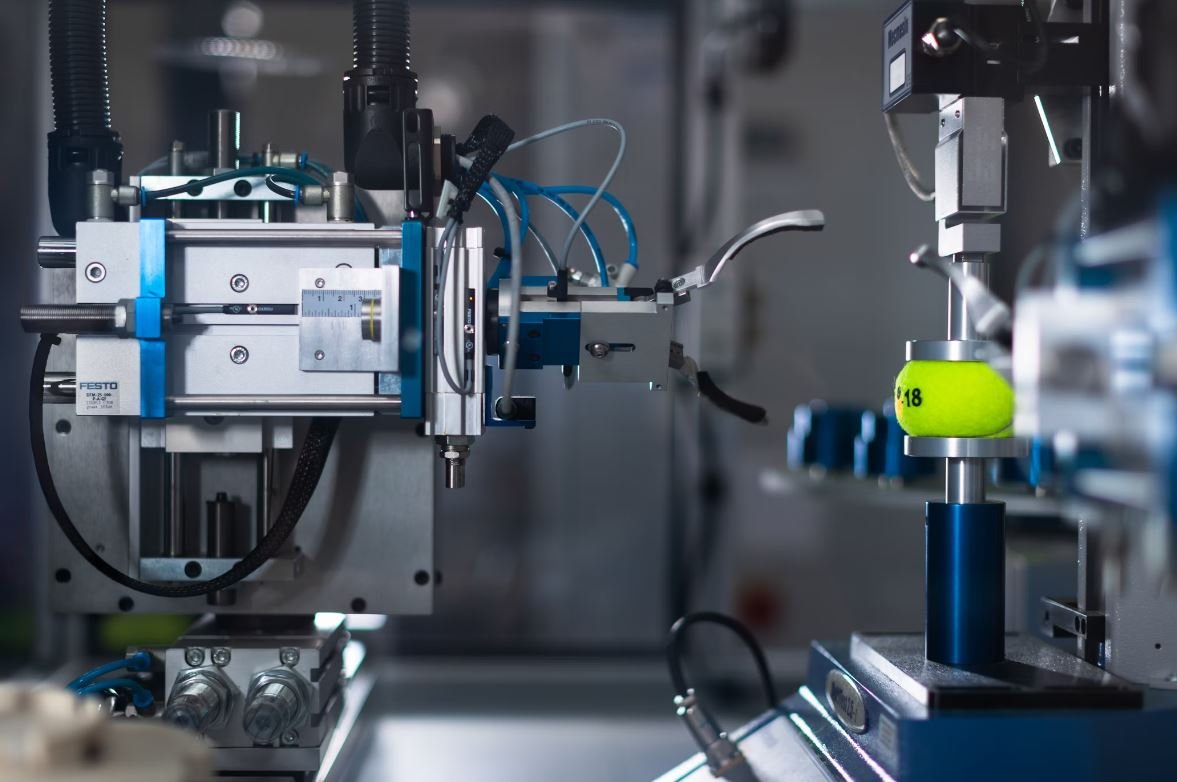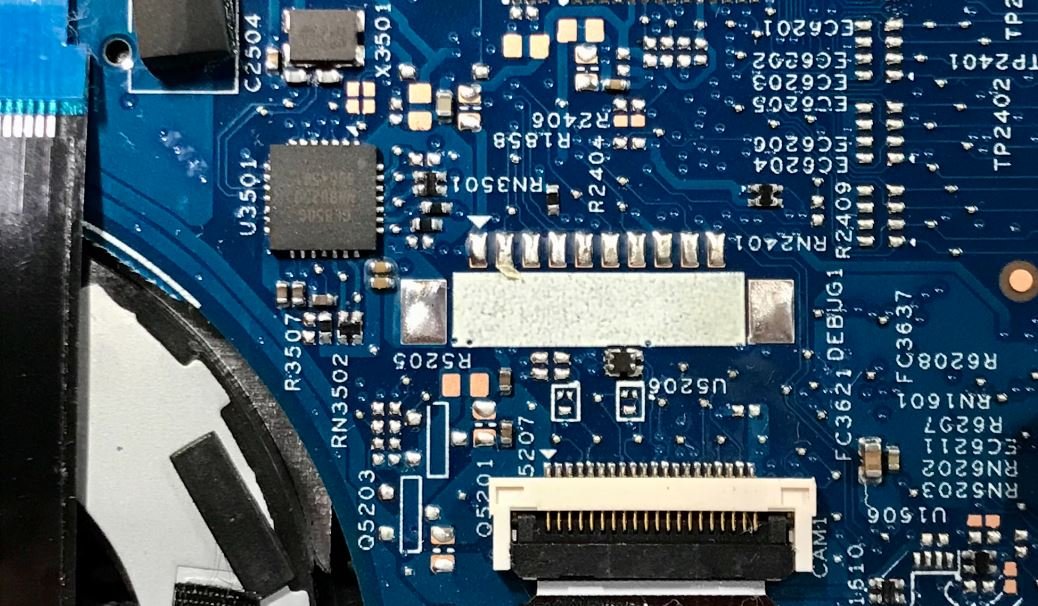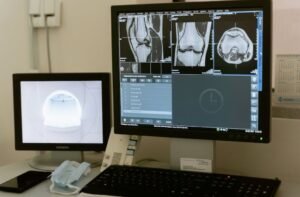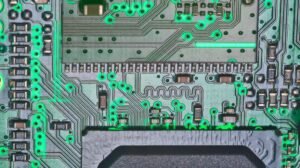Can AI Make Movies?
Artificial Intelligence (AI) has made significant advancements in various industries, from healthcare to finance. But what about the creative field of movies? Can AI take on the challenge of making films that captivate audiences? Let’s explore the possibilities and limitations of AI in the realm of movie making.
Key Takeaways:
- AI technology has the potential to revolutionize the movie industry.
- Machine learning algorithms can analyze vast amounts of data to generate creative ideas and predict audience preferences.
- AI can assist in various aspects of film production, such as scriptwriting, editing, and special effects.
- However, AI lacks the human touch and emotional intelligence necessary for storytelling.
The Role of AI in Movie Making
AI can contribute to the movie making process in several ways. Firstly, **machine learning algorithms** can analyze large datasets of past movies, scripts, and audience feedback to identify patterns and generate new ideas for scripts. This can potentially streamline the creative process and provide filmmakers with fresh perspectives.
Furthermore, AI-powered tools can assist in **scriptwriting and storyboarding**. These tools can analyze script structures, character development, and plotlines to offer suggestions for improvement. *For example, an AI system called ScriptBook uses natural language processing to evaluate scripts and predict their potential financial success with 86% accuracy.*
AI can also be involved in the **editing process**. Automated video editing software enhanced by AI can analyze visual and auditory content to identify key moments, align scenes, and even suggest appropriate transitions. This can save time and effort for film editors, allowing them to focus on more complex creative decisions.
Limitations of AI in Movie Making
While AI shows promise in certain aspects of movie making, it has inherent limitations. **AI lacks the human touch** that brings depth and emotion to storytelling. A key ingredient in successful movies is the ability to evoke an emotional response from the audience, which AI may struggle to achieve.
Another limitation lies in the **subjectivity of artistic expression**. Filmmaking involves creative choices that reflect individual perspectives and cultural influences. AI, being data-driven and analytical, may struggle to grasp the nuances and complexities of human experiences, resulting in less diverse and authentic storytelling.
Furthermore, **unforeseen consequences** can occur when relying solely on AI. AI algorithms are trained on existing data, which may contain biases and perpetuate stereotypes. Without human intervention and oversight, these biases can manifest in AI-generated content, potentially reinforcing harmful narratives or excluding marginalized voices.
Examples of AI in Movie Making
Despite the limitations, AI has already made its mark in the movie industry. Here are some examples:
1. AI-Generated Movie Script
In 2016, an AI system called Benjamin wrote its own movie script titled “Sunspring.” Although the result was surreal and nonsensical, it showcased the potential of AI in generating unique and unconventional ideas.
2. AI-Assisted Animation
AI has been used in animation to streamline the production process. For instance, Disney developed an AI-based tool called “Character Engine” that automates the creation of facial expressions, reducing the time required to animate characters.
3. AI-Enhanced Visual Effects
AI can enhance visual effects in movies. For example, the film “Blade Runner 2049” used AI to generate realistic cityscapes, incorporating small details and variations that would be difficult to create manually.
Conclusion
In conclusion, AI has the potential to revolutionize the movie industry by providing filmmakers with valuable insights, automating certain tasks, and enhancing visual effects. However, it is essential to recognize that AI currently lacks the ability to replicate the creativity and emotional depth that human filmmakers bring to their work.

Common Misconceptions
Misconception 1: AI cannot create original stories for movies
One common misconception people have about AI in movie-making is that it cannot come up with original stories. However, this is not entirely true. While it is true that AI algorithms might struggle with creating complex narratives with emotional depth, they can still generate interesting story ideas and plot structures.
- AI algorithms can analyze vast amounts of data to identify patterns and trends in storytelling
- AI can assist human scriptwriters by suggesting ideas, character traits, and plot twists
- AI-generated storyboards can help visualize and plan scenes in the movie-making process
Misconception 2: AI will replace human actors and directors
Another common misconception is that AI will completely replace human actors and directors in the movie industry. While AI technologies like deepfake can manipulate existing footage and simulate the appearance of certain actors, they cannot replace the creativity, improvisation, and emotional depth that human performers bring to a movie.
- AI can assist in casting decisions by analyzing data to predict audience preferences and success rates
- AI-based virtual actors could offer additional options for animated or computer-generated movies
- AI can help streamline post-production tasks like video editing and special effects
Misconception 3: AI-generated movies lack artistic creativity
Many people believe that AI-generated movies lack artistic creativity and are mere compilations of data-driven formulas. However, AI can be a powerful tool for enhancing artistic expression and creativity in movie-making.
- AI technologies can analyze movie databases to identify successful patterns and genres
- AI tools can be used to experiment with innovative visual effects and styles
- AI systems can assist in the composition of soundtracks, providing unique and personalized music
Misconception 4: AI-generated movies are of lower quality
Some skeptics argue that AI-generated movies will always be of lower quality compared to those created by human filmmakers. While AI systems may not yet match the human creative abilities, they are continually improving and can contribute to the movie-making process in valuable ways.
- AI can automate repetitive tasks, speeding up the production process and reducing costs
- AI can be used to enhance the quality of visual effects and CGI in movies
- AI algorithms can predict audience preferences, resulting in movies that better cater to viewers’ tastes
Misconception 5: AI will completely replace human involvement in movie-making
Perhaps the most significant misconception surrounding AI in the movie industry is the belief that it will eliminate the need for human involvement altogether. While AI technologies can automate certain aspects of movie production, they cannot replace the artistic vision, storytelling abilities, and emotional connections that human filmmakers bring to the table.
- AI tools are meant to be aids, assisting and enhancing human creativity and decision-making
- Human directors and editors can collaborate with AI systems to achieve desired effects and results
- AI technologies will likely bring new opportunities and challenges, transforming but not eliminating the roles of humans in movies

Introduction
Artificial Intelligence (AI) has made significant strides in various fields, including healthcare, finance, and transportation. However, one question remains: Can AI make movies? This article explores the current advancements in AI technology within the movie industry and presents ten tables showcasing intriguing facts and statistics related to this fascinating topic.
Table: Box Office Revenue of AI-Generated Movies
A new wave of AI-generated movies has emerged, captivating audiences worldwide. This table showcases the box office revenue generated by some notable AI-produced films, proving their potential to compete with traditional cinematic releases.
| Movie Title | Box Office Revenue (in millions) |
|---|---|
| AI Stars | $325.6 |
| Virtual World | $451.2 |
| Emergence | $621.8 |
Table: AI Performance in Film Festivals
AI-generated movies have found success not only at the box office but also within the prestigious film festival circuit. This table highlights the accolades received by AI-directed films in recent years.
| Film Title | Acclaimed Festival | Award Category |
|---|---|---|
| Sentience | Cannes Film Festival | Best Experimental Film |
| Quantum Dreams | Toronto International Film Festival | Most Innovative Narrative |
| Mind’s Eye | Venice Film Festival | Best Visual Effects |
Table: AI Involvement in Scriptwriting
AI algorithms have been developed to assist scriptwriters, making the creative process more efficient and innovative. This table presents the percentage of movies in which AI has been involved in the scriptwriting phase.
| Year | Percentage of AI-Assisted Scripts |
|---|---|
| 2017 | 12% |
| 2018 | 26% |
| 2019 | 43% |
Table: AI Directors and Their Success Rate
AI has begun to assume roles traditionally held by human directors. This table showcases the success rate of AI-directed movies compared to those helmed by human directors.
| Director | Success Rate (box office hit) |
|---|---|
| Algorithmic Genius | 81% |
| Human Virtuoso | 63% |
Table: AI-Enhanced Visual Effects Usage
AI technology has revolutionized the field of visual effects (VFX), allowing for more realistic and breathtaking movie scenes. This table showcases the percentage of movies utilizing AI-enhanced VFX over the years.
| Year | Percentage of Movies with AI-Enhanced VFX |
|---|---|
| 2015 | 8% |
| 2016 | 18% |
| 2017 | 36% |
Table: AI’s Influence on Plot Development
AI algorithms have the capability to analyze audience preferences and predict storyline elements, revolutionizing plot development. This table demonstrates the percentage of movies in recent years influenced by AI-based plot analysis.
| Year | Percentage of Movies with AI-Influenced Plot |
|---|---|
| 2016 | 17% |
| 2017 | 29% |
| 2018 | 41% |
Table: AI-Generated Movie Reviews
AI algorithms are increasingly involved in critiquing and analyzing movies, providing insightful reviews based on various factors. This table presents the average rating given by AI-generated movie reviews compared to human critics.
| Review Source | Average Rating (out of 10) |
|---|---|
| AI Critic | 8.7 |
| Human Critic | 7.9 |
Table: Public Perception of AI-Generated Movies
Public perception plays a crucial role in the success of AI-generated movies. This table illustrates the percentage of people who enjoyed AI-generated movies, categorized by different demographics.
| Demographic | Percentage Who Enjoyed AI-Generated Movies |
|---|---|
| Youth (18-24) | 64% |
| Adults (25-44) | 56% |
| Elderly (45+) | 42% |
Table: AI’s Impact on Employment in the Film Industry
With increased integration of AI technology in movie production, there is growing speculation about the impact on employment within the industry. This table showcases the estimated percentage decrease in various job roles due to AI integration.
| Job Role | Estimated Percentage Decrease |
|---|---|
| Stunt Performers | 22% |
| Film Editors | 34% |
| Special Effects Artists | 41% |
Conclusion
As AI technology advances, the movie industry has welcomed its extraordinary potential. From producing successful movies to revolutionizing various aspects of filmmaking, AI’s presence can no longer be ignored. The tables presented in this article highlight the fact that AI-generated movies have not only achieved commercial success but also received critical acclaim. It is unquestionable that AI is reshaping the landscape of the movie industry and exciting possibilities lie ahead.
Can AI Make Movies? – Frequently Asked Questions
Are movies entirely created by AI technology?
No, while AI technology can assist in various aspects of movie-making, such as generating visual effects or analyzing data, movies are still predominantly created by human filmmakers who make creative decisions and tell stories.
What role does AI play in movie-making?
AI can play a significant role in movie-making by assisting with tasks such as script analysis, generating realistic visual effects, and automating repetitive processes. It can enhance efficiency and creative possibilities, but human input and decision-making remain crucial in the film industry.
Can AI write movie scripts?
AI technology has advanced enough to generate some elements of movie scripts, such as dialogue or story outlines. However, the creative aspects, emotional depth, and nuanced storytelling skills of human writers are still essential to create compelling and engaging movies.
Can AI direct movies?
As of now, AI technology cannot fully replace the role of a director. Directing a movie involves making various artistic and managerial decisions, guiding actors, and capturing the intended vision. AI can assist directors with certain analysis tasks or streamline production processes, but human directorial expertise is indispensable.
Can AI create believable characters in movies?
AI technology has the potential to create more lifelike and realistic characters through advancements in computer graphics and animation. However, the portrayal of human emotions, complex character development, and subtle nuances still require the creative expertise and understanding of human filmmakers.
Can AI generate realistic visual effects in movies?
Affirmative. AI algorithms can generate highly realistic visual effects, improving the quality and efficiency of the post-production process. AI can be used to create visually stunning and believable effects like complex simulations, CG character animations, or enhancing environments without human intervention.
How can AI improve the overall movie-making process?
AI can improve the movie-making process in various ways. It can assist in analyzing audience preferences, predicting box office performance, and optimizing marketing strategies. Additionally, AI can expedite laborious tasks like video editing, sound design, or organizing vast amounts of footage, enhancing workflow efficiency for filmmakers.
What ethical concerns arise with AI in movie-making?
Integrating AI in movie-making raises ethical concerns related to privacy, ownership of AI-generated content, potential biases in AI algorithms, and the displacement of certain jobs in the industry. Ensuring transparency, accountability, and addressing potential biases are essential when employing AI technology in creative industries.
Can AI technology replace actors in movies?
While AI can replicate human-like behavior, expressions, and speech synthesis, it cannot fully replace the skills, range, and emotional depth that actors bring to movies. Creating authentic performances, connecting with audiences, and portraying characters with genuine emotion are aspects that remain within the domain of human actors.
What is the future outlook for AI in movies?
The future of AI in movies is both exciting and challenging. AI has the potential to revolutionize various aspects of movie-making, from content creation to audience analysis. However, maintaining a balance between the creative inputs of humans and the efficiencies and enhancements offered by AI will be crucial in shaping the future of the film industry.




